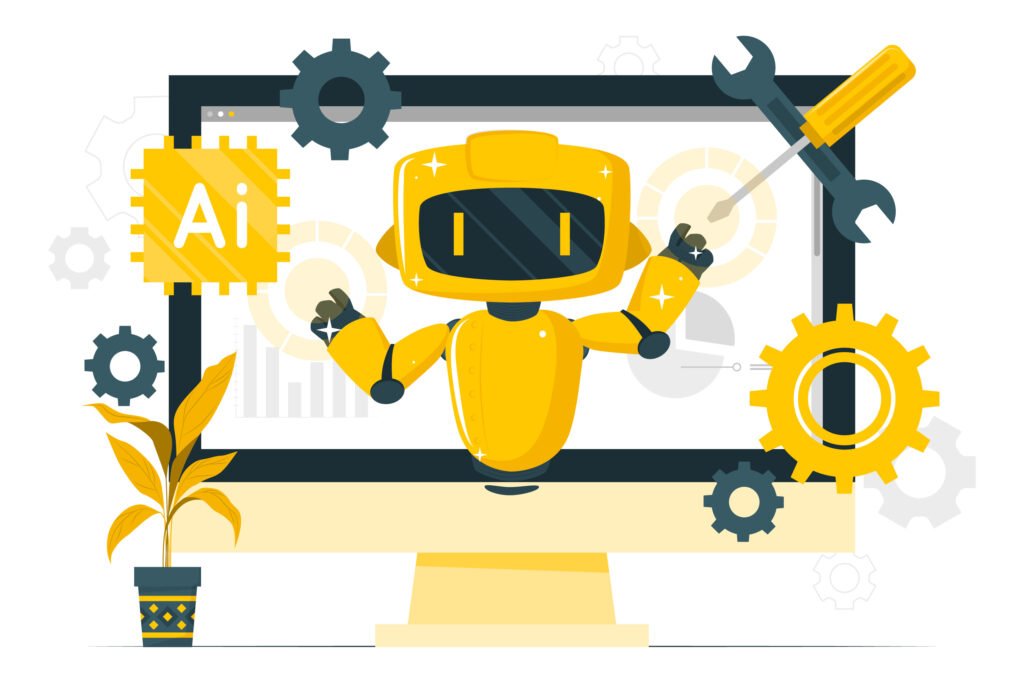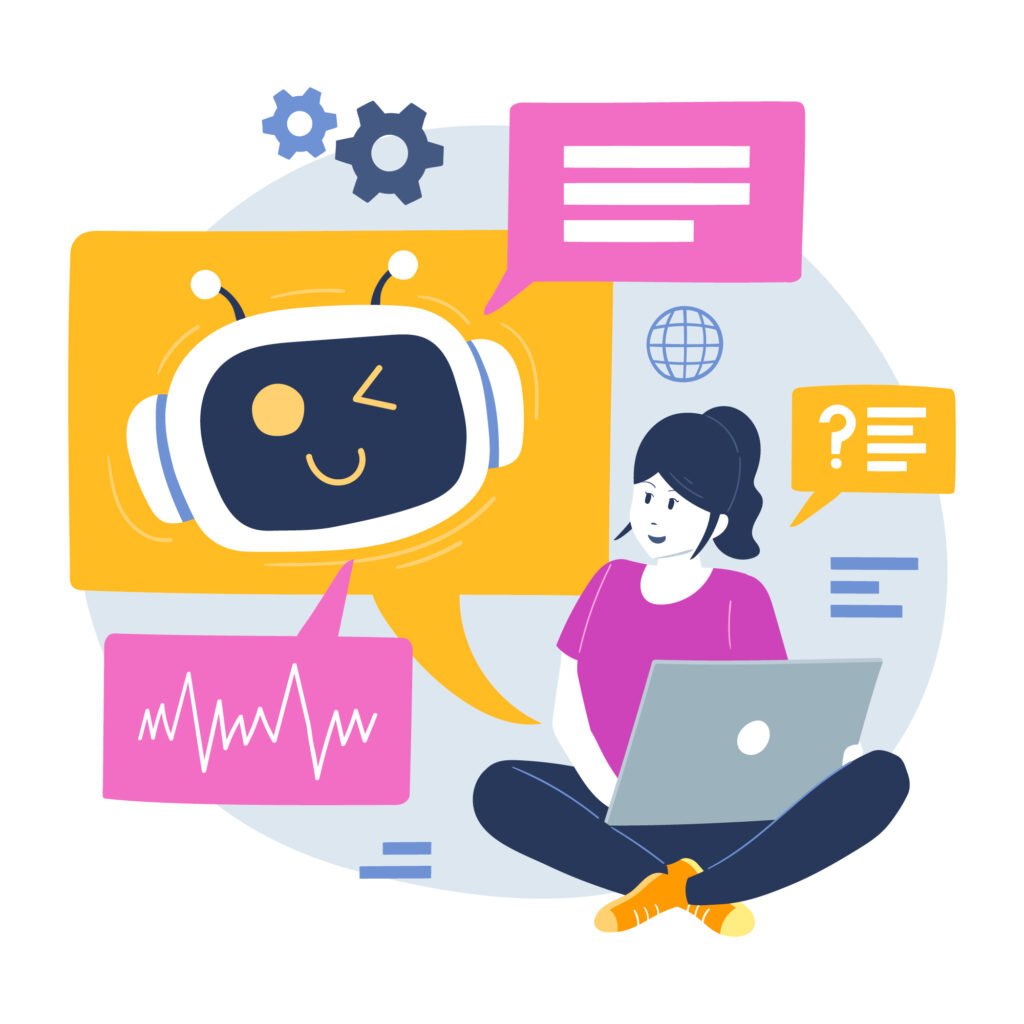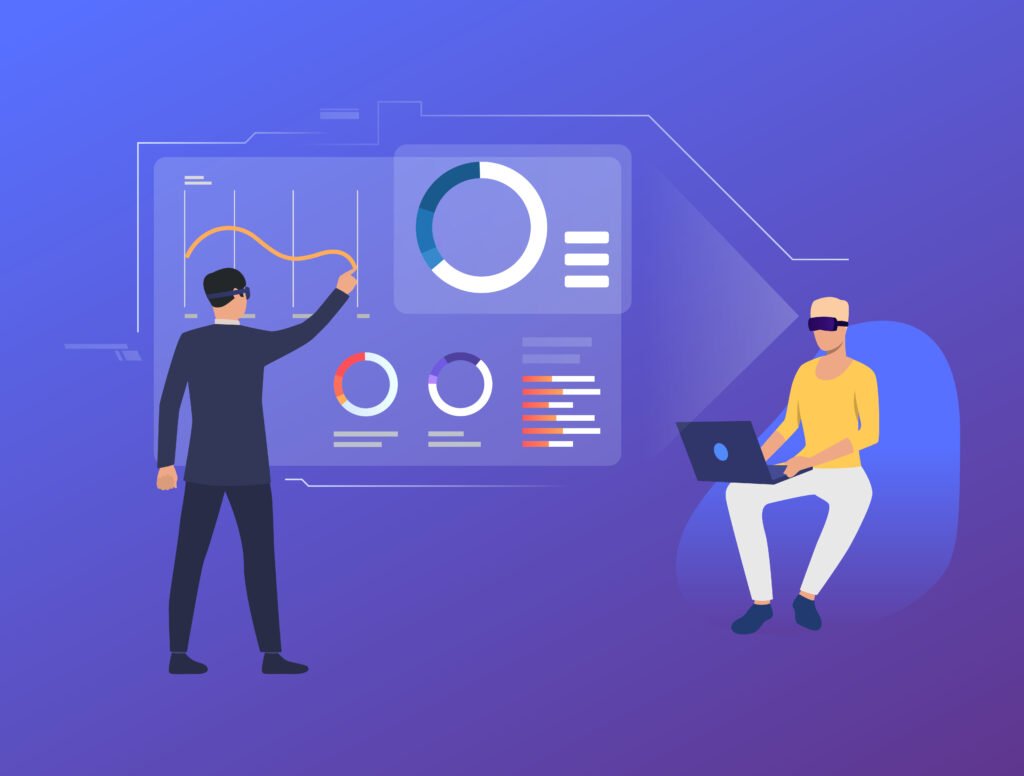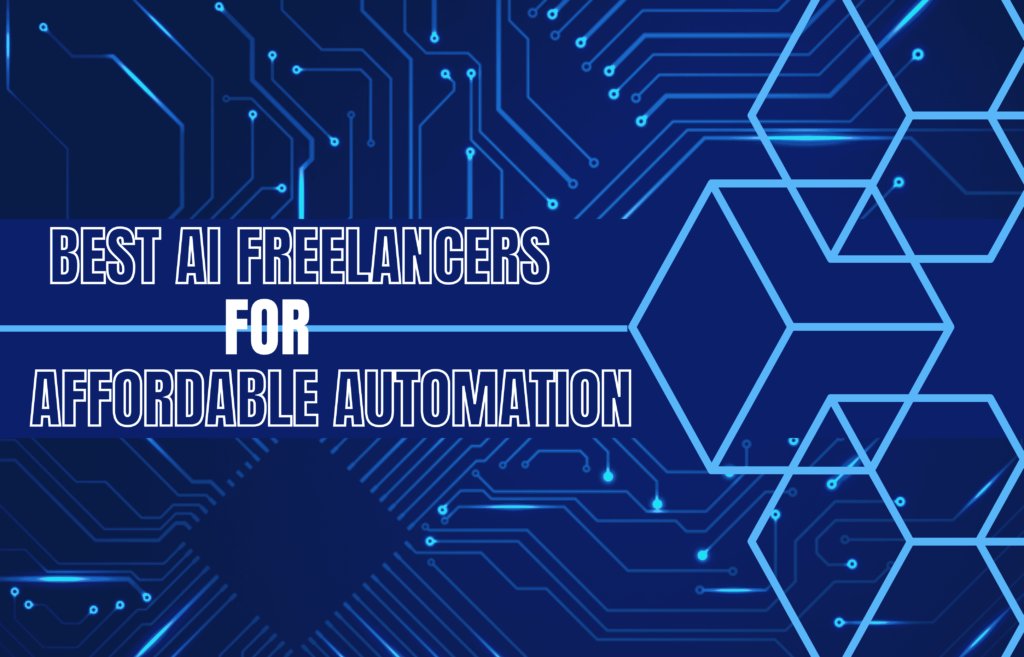Table of Contents
Introduction
Artificial intelligence (AI) is rapidly reshaping the business landscape, and it’s no longer just a tool for large corporations with deep pockets.
For small businesses, AI offers robust, accessible solutions that can automate tasks, provide valuable insights, and drive growth like never before.AI is transforming everything from digital marketing to business intelligence for small businesses, and its applications span a broad range of functions.
AI-driven business solutions can offer customized solutions that align with goals and operational needs of startup or even large organizations.
The Role of AI in Modernizing Small Business Operations
Unlike in the past, where only large corporations had access to AI technology, today’s AI tools are accessible, affordable, and user-friendly. This accessibility allows small businesses to modernize their operations and stay competitive in an evolving digital landscape.
A. Why AI is Important for Small Business Growth
For small businesses, growth can often be a balancing act between managing operational costs and scaling services.
AI can provide a way forward by automating repetitive tasks, offering data-driven insights, and identifying new growth opportunities.
- Increased Efficiency and Productivity: One of AI’s most immediate benefits is its ability to automate routine tasks, freeing up time for employees to focus on strategic activities. This increase in productivity is crucial for small businesses with limited resources.
- Data-Driven Insights for Smarter Decision-Making: AI tools quickly analyze vast amounts of data, uncovering trends and patterns that would be difficult to spot manually. This is invaluable, as AI is transforming business intelligence, providing small businesses with actionable insights that help them make better, more informed decisions.
- Cost Savings and Resource Allocation: AI reduces the need for manual intervention by automating tasks such as customer support and inventory management maximizing ROI while minimizing operational costs.
B. Accessibility of AI Tools for Small Businesses
Various affordable AI tools are explicitly designed now for smaller operations, meaning businesses don’t need extensive IT infrastructure or a dedicated data science team to benefit from AI.

- User-Friendly AI Platforms: Many AI platforms now offer intuitive, easy-to-use interfaces tailored to small business needs. These platforms allow businesses to leverage AI without technical expertise, from automated marketing tools to AI-powered customer service.
- Affordable AI Solutions: Numerous affordable AI tools are available like gpt models for essential business functions such as scheduling, inventory management, and digital marketing.
- Consulting Services for Customized AI Solutions: Some small businesses work with an AI consultant for small business who helps them select and implement the best AI tools for their specific goals. Consultants can guide small business owners on effective AI strategies, ensuring they achieve optimal results while keeping costs low.
Key Areas Where AI is Impacting Small Businesses
Artificial intelligence is reshaping many aspects of small business operations. By leveraging AI tools, businesses can enhance customer service, streamline inventory management, target marketing efforts more precisely, and make better financial decisions. Let’s explore the key areas where AI transforms small business operations and how each impacts growth and efficiency.
AI in Customer Service: Chatbots and Virtual Assistants
One of the most visible ways AI is transforming small business operations is through improvements in customer service.
Small businesses are adopting AI-powered chatbots and virtual assistants to provide 24/7 customer support, improve response times, and enhance customer satisfaction.

- Automated Customer Queries: Chatbots can handle routine customer queries, from providing essential product information to guiding users through purchasing processes. This ensures that customers receive immediate responses outside regular business hours, enhancing their overall experience.
- Virtual Assistants for Personalized Service: Virtual assistants are also enabling businesses to provide more personalized service. These AI systems can offer tailored suggestions and recommendations by analyzing customer data and purchase histories. This personalization makes customers feel valued and fosters more robust relationships with the brand.
- Cost Savings and Efficiency: Unlike traditional customer service teams that require salaries, training, and benefits, AI-driven chatbots offer a cost-effective alternative. They help small businesses save on overhead while still providing quality service.
AI for Inventory and Supply Chain Management
Managing inventory can be one of the most challenging aspects of running a small business. AI is making a significant difference here, providing solutions that reduce the burden on business owners by optimizing inventory levels and streamlining supply chains.

- Demand Forecasting: AI tools can analyze sales data, identify trends, and predict future demand. Accurate forecasting minimizes stockouts and overstock situations, which helps small businesses save on storage costs and avoid lost sales.
- Automated Stock Management: Inventory management AI systems also monitor stock levels in real time, notifying business owners when to reorder. This automation ensures businesses are always well-stocked without manual tracking, which is prone to human error.
- Supply Chain Optimization: AI tools allow small businesses to stay agile by predicting supply chain disruptions and suggesting alternative suppliers.
Digital marketing strategies powered by AI are also transforming small business growth. Learn more about how digital marketing drives business growth.
Benefits of AI for Small Business Operations
Implementing artificial intelligence (AI) can give small businesses a competitive edge by automating tasks, delivering valuable insights, and improving operational efficiency.
As AI becomes more accessible and affordable, small businesses are using it to streamline their processes and reach new heights in growth. Let’s explore the key benefits of AI in transforming small business operations, from increased productivity to more intelligent decision-making.
Increased Efficiency and Productivity

AI boosts productivity by automating repetitive tasks, allowing employees to focus on high-impact activities. Automated administrative tasks like scheduling, data entry, and follow-ups save time, while AI-driven chatbots handle customer inquiries 24/7, enhancing satisfaction without increasing staff. With faster data processing, small businesses receive real-time insights, helping them stay agile and competitive.
Cost Savings Through Process Automation

AI reduces costs by streamlining operations and minimizing manual labor. Reduced labor costs come from automating tasks like customer support and social media management.
Efficient inventory management powered by AI Automation for small enterprises prevents overstock and stockouts, saving storage costs. These affordable marketing automation tools allow precise customer targeting, maximizing ROI.
Improved Decision-Making with Data-Driven Insights

AI transforms business intelligence by making data analysis accessible and actionable. With predictive analytics, businesses can forecast trends and customer behavior, giving them a competitive edge. AI’s personalized customer insights enable small businesses to tailor offerings and marketing, boosting customer satisfaction and loyalty.
“AI can also support branding efforts by streamlining design tasks. Discover why great design is essential for small business branding.”
How Small Businesses Can Start Using AI

Choosing the Right AI Tools for Your Business
To make the most of AI, identify key areas like customer service or inventory management where AI can be impactful. Choose affordable, tailored tool platforms like FIver to consult AI experts for better results.
Leveraging Affordable AI Solutions for Small Businesses
Today, many affordable AI tools for small businesses are available as subscription services. Options like Canvas AI-driven design features or ChatGPT for customer support allow enterprises to scale AI within budget constraints. Some tools also offer freemium or trial versions, making it easy to test solutions before committing.
“Discover how AI-powered tools enhance website functionality and streamline operations.”
Training Employees to Use AI Effectively
For AI adoption to succeed, employees must understand how AI transforms business intelligence and daily operations. Initial and ongoing training ensures staff can fully utilize AI tools, while employee feedback refines the implementation. This approach enhances productivity and ensures AI tools are used to their fullest potential.
Final Thoughts: The Future of AI in Small Business Operations
The role of AI in small business operations is just beginning, and its potential continues to grow as technology advances. With more user-friendly and affordable tools, small businesses are better equipped than ever to integrate AI and reap its benefits. How AI is transforming small business operations is already evident in areas like customer service, inventory management, and marketing. The future holds even greater possibilities as AI evolves to offer more robust features, adaptable platforms, and innovative solutions tailored to smaller enterprises.
Small businesses that adopt AI now will gain a competitive edge by improving efficiency, reducing costs, and delivering a more personalized customer experience. Moreover, the demand for specialized roles, like an AI consultant for small businesses, will likely increase as AI advances. AI consultants can guide small business owners through the implementation process, helping them select the right tools and strategies to maximize their return on investment.
AI will continue to play a critical role in areas such as transforming digital marketing concept by offering even more precise customer segmentation and campaign personalization. Machine learning will only expand, providing small businesses access to insights once reserved for large corporations. Small businesses can adapt and remain competitive in an increasingly digital world by staying informed on new AI developments.
FAQ
How can AI help small businesses grow?
AI helps small businesses grow by automating tasks, providing data-driven insights, and enhancing customer service. This allows small businesses to operate more efficiently, make better decisions, and deliver a more personalized experience to their customers.
What are some affordable AI tools for small businesses?
There are several budget-friendly AI tools available, including platforms like ChatGPT for customer support, Mailchimp for AI-powered email marketing, and Canva for AI-driven design features. Many of these tools offer tiered pricing, making them accessible to small businesses of all sizes.
How can an AI consultant for small business be helpful?
AI consultant for small business can provide guidance on the best AI tools to meet specific business goals, as well as assist with implementation and employee training. Consultants ensure that small businesses gain maximum value from their AI investments.
How is AI transforming digital marketing for small businesses?
Includes personalized content creation, audience segmentation, and ad targeting. These AI-driven features allow small businesses to connect with their customers on a deeper level and improve marketing ROI.
Are there any risks for small businesses in using AI?
While AI provides numerous benefits, potential risks include data privacy concerns, initial implementation costs, and the need for ongoing training. However, by choosing reliable tools and implementing strong data security practices, small businesses can mitigate these risks effectively.



